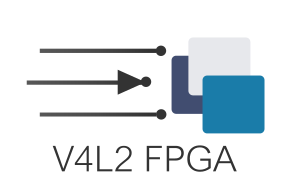V4L2 FPGA/Introduction: Difference between revisions
No edit summary |
(Enhancing descriptions) |
||
| Line 6: | Line 6: | ||
--> | --> | ||
On this section, you are going to learn about the V4L2 | On this section, you are going to learn more about the V4L2 FPGA and its main features. When you finish this section you are going to have a general knowledge about this project's key features, and the supported modules. | ||
*[[V4L2_FPGA/Introduction/Overview|Overview]] section explains the project general structure and | *[[V4L2_FPGA/Introduction/Overview|Overview]] section explains the project general structure and technologies. | ||
*[[V4L2_FPGA/Introduction/Frame_Grabber|Frame Grabber]] section explains how to use the FPGA as a frame grabber capable of consuming video content from an external source, process them | *[[V4L2_FPGA/Introduction/Frame_Grabber|Frame Grabber]] section explains how to use the FPGA as a frame grabber capable of consuming video content from an external source, process them through hardware-described accelerators and finally, provide them to the system for further processing. | ||
*[[V4L2_FPGA/Introduction/Sink|Sink]] section explains how to use the FPGA as a sink element capable of consuming video frames. | *[[V4L2_FPGA/Introduction/Sink|Sink]] section explains how to use the FPGA as a sink element capable of consuming video frames from your system. Some examples are accelerated video decoding and display with custom screens. | ||
*[[V4L2_FPGA/Introduction/HW_Acceleration|Filter]] section explains the advantages of | *[[V4L2_FPGA/Introduction/HW_Acceleration|Filter]] section explains the advantages of implementing image/video filter accelerators on the FPGA. This feature can be used to process video content in any required way and return it back to the system for further processing. | ||
<noinclude> | <noinclude> | ||
{{V4L2_FPGA/Foot||Introduction/Overview}} | {{V4L2_FPGA/Foot||Introduction/Overview}} | ||
</noinclude> | </noinclude> | ||
Revision as of 16:43, 16 July 2019
| V4L2 FPGA |
|---|
 |
| Introduction |
| Getting the Code |
| Examples |
| GStreamer Pipelines |
| Supported Platforms |
| Contact Us |
On this section, you are going to learn more about the V4L2 FPGA and its main features. When you finish this section you are going to have a general knowledge about this project's key features, and the supported modules.
- Overview section explains the project general structure and technologies.
- Frame Grabber section explains how to use the FPGA as a frame grabber capable of consuming video content from an external source, process them through hardware-described accelerators and finally, provide them to the system for further processing.
- Sink section explains how to use the FPGA as a sink element capable of consuming video frames from your system. Some examples are accelerated video decoding and display with custom screens.
- Filter section explains the advantages of implementing image/video filter accelerators on the FPGA. This feature can be used to process video content in any required way and return it back to the system for further processing.
